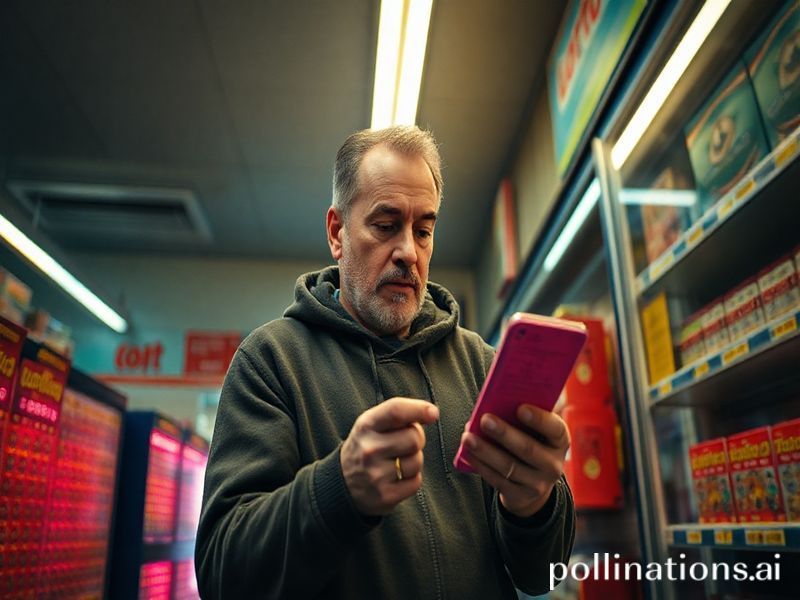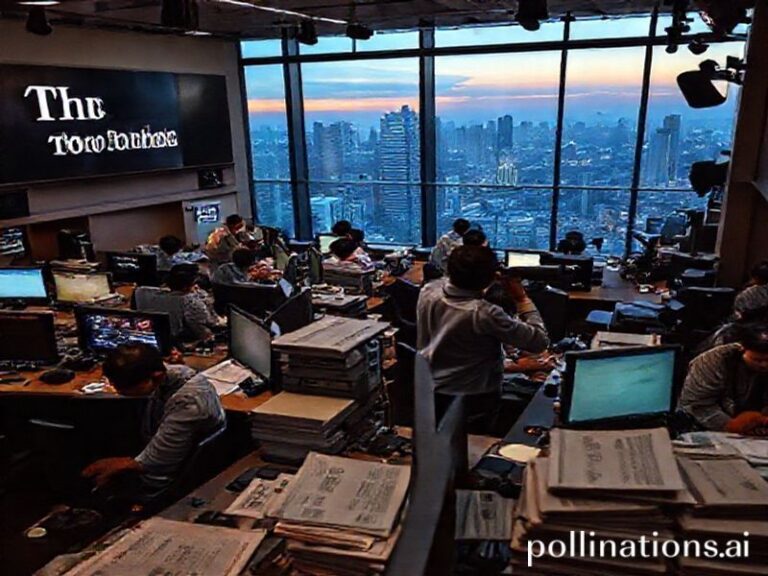lotto
The World’s Most Democratic Tax on Hope
By Our Correspondent, Somewhere Between the 7-Eleven and the Edge of Reason
It was 8:03 p.m. in Madrid when Carlos, a civil servant who hasn’t seen a raise since fax machines were chic, forked over his last two euros for “El Gordo” Christmas tickets. Twelve time zones away, in Manila, Jocelyn, a nurse who spends her nights watching other people’s grandfathers die, bought a Quick Pick because, as she told the kiosk guy, “Somebody has to beat the system.” They will never meet, yet they are comrades in the largest, most inclusive club on earth: the International Brotherhood and Sisterhood of Suckers Who Still Believe in Math Miracles.
Every week, humanity collectively drops roughly the GDP of Slovenia on lottery tickets—about $300 billion a year, according to the World Lottery Association, an outfit whose business model is literally built on the phrase “you never know.” That’s more than the global coffee trade, slightly less than worldwide arms sales, and just enough to make you wonder whether the real weapons of mass destruction are scratch cards scented with counterfeit optimism.
The genius of the lotto is its elegant, borderless simplicity. From the neon kiosks of Tokyo’s Shinjuku to the dusty roadside stalls of Ouagadougou, the transaction is identical: currency is transformed into a paper talisman against existential dread. The odds—roughly 1 in 292 million for Powerball—are so laughable that only humans, the same species that invented both calculus and the mullet, could consider them a retirement plan. Yet every jackpot surge proves we’re more united by improbability than by democracy, religion, or even Wi-Fi.
In China, the Welfare Lottery funds social programs with the same moral elasticity that allows “socialism with Chinese characteristics” to coexist with a Ferraris-for-dogs economy. Meanwhile, Italy’s SuperEnalotto once rolled over so many times that the pot eclipsed the national debt, prompting wags to suggest the winner simply buy the country and rename it Disappointmentland. The United States, never one to outsource its delusions, has turned lottery drawings into prime-time pageants hosted by televangelists of chance, complete with drumrolls that sound suspiciously like the heartbeat of late-stage capitalism.
Then there’s the geopolitical subplot. When jackpots swell, cross-border ticket tourism flourishes; buses of Quebecois pensionists descend on Vermont like polite Vikings, while Thai gamblers charter flights to Laos where the numbers are rumored to be “luckier.” These pilgrimages are treated by governments as soft power: nothing says “land of opportunity” like letting foreigners lose money more efficiently at home than abroad.
Technological innovation keeps the dream renewable. Blockchain lotteries now promise “provably fair” algorithms, which is comforting until you realize the code is audited by the same species that brought you 2008’s mortgage-backed securities. Mobile apps ping users at 3 a.m.—“Your stars are aligned! Tap here to mortgage Tuesday!”—turning insomnia into a revenue stream. In Kenya, M-Pesa lotteries deduct micro-payments so seamlessly from digital wallets that players discover their weekly stake only when their phone politely informs them they can no longer afford lunch.
And yet, mocking the lotto is the easiest hypocrisy. Scratch beneath the cynicism and you find the same itch that powered every migration, revolution, or bad Tinder date: the unbearable lightness of maybe. Statistically, you are likelier to be crushed by a vending machine while texting, but statistics have never consoled a single mother working three gigs or a Syrian refugee in a German shelter who still buys a ticket because “hope is cheaper than therapy.” The jackpot is not money; it’s permission to imagine time off from survival.
So as tonight’s numbers rattle through the plastic globe—an echo chamber for our collective gasp—remember that the planet is spinning on an axis of improbability. If your ticket is worthless tomorrow, console yourself with this: you have participated in humanity’s most honest transaction. You paid a voluntary tax on the luxury of pretending tomorrow could be radically different. Governments will skim the pot, advertisers will monetize your disappointment, and the odds will remain gloriously, hilariously intact.
And somewhere, Carlos and Jocelyn are already queuing again. After all, the next drawing is only 168 hours away—just enough time to forget the math and remember the dream.







